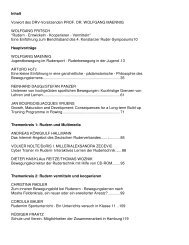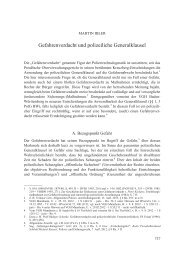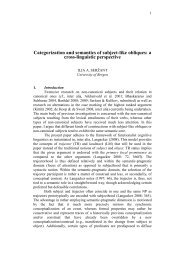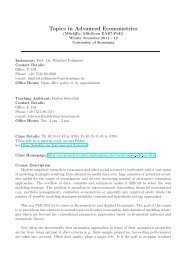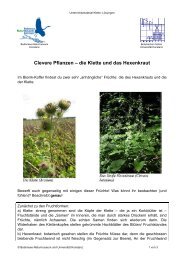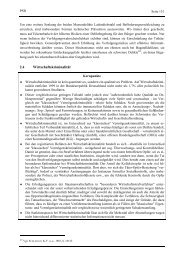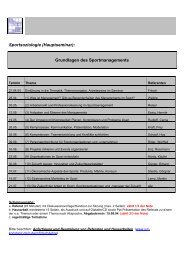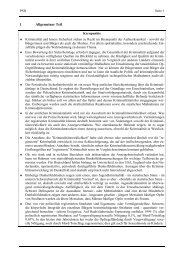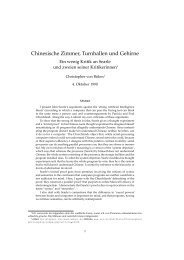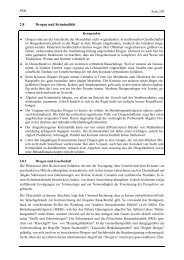Book of Abstracts Book of Abstracts - Universität Konstanz
Book of Abstracts Book of Abstracts - Universität Konstanz
Book of Abstracts Book of Abstracts - Universität Konstanz
Create successful ePaper yourself
Turn your PDF publications into a flip-book with our unique Google optimized e-Paper software.
Melting, Pre-melting, and Glass Transitions in Gallium and Aluminum<br />
Clusters<br />
G.A. Breaux, B. Cao, C.M. Neal, and M. F. Jarrold<br />
Department <strong>of</strong> Chemistry, Indiana University, 800 East Kirkwood Avenue, Bloomington, Indiana 47405-<br />
7102, USA<br />
The melting <strong>of</strong> gallium and aluminum clusters with between 10 and 70 atoms has been<br />
examined using multicollision induced dissociation (MCID) calorimetry measurements and high<br />
temperature ion mobility measurements. A first order melting transition is indicated by a spike<br />
in the heat capacity due to the latent heat and an abrupt change in the average collision cross<br />
section due to a change in the volume or shape <strong>of</strong> the cluster when it melts. For some aluminum<br />
clusters (e.g. Al51 + and Al52 + ) the peaks in the heat capacity are bimodal suggesting the presence<br />
<strong>of</strong> a pre-melting transition where the surface <strong>of</strong> the cluster melts before the core. While premelting<br />
transitions are present in many simulations <strong>of</strong> cluster melting, this is the first time they<br />
have been observed experimentally. For some gallium clusters, the collision cross sections<br />
suggest that a melting transition occurs while there is no peak in the heat capacity. This is the<br />
signature for a glass transition which has been predicted to occur for some cluster sizes in<br />
several recent simulations. A glass transition occurs for clusters which are intrinsically<br />
amorphous - clusters that do not have a well-defined geometry.<br />
27




